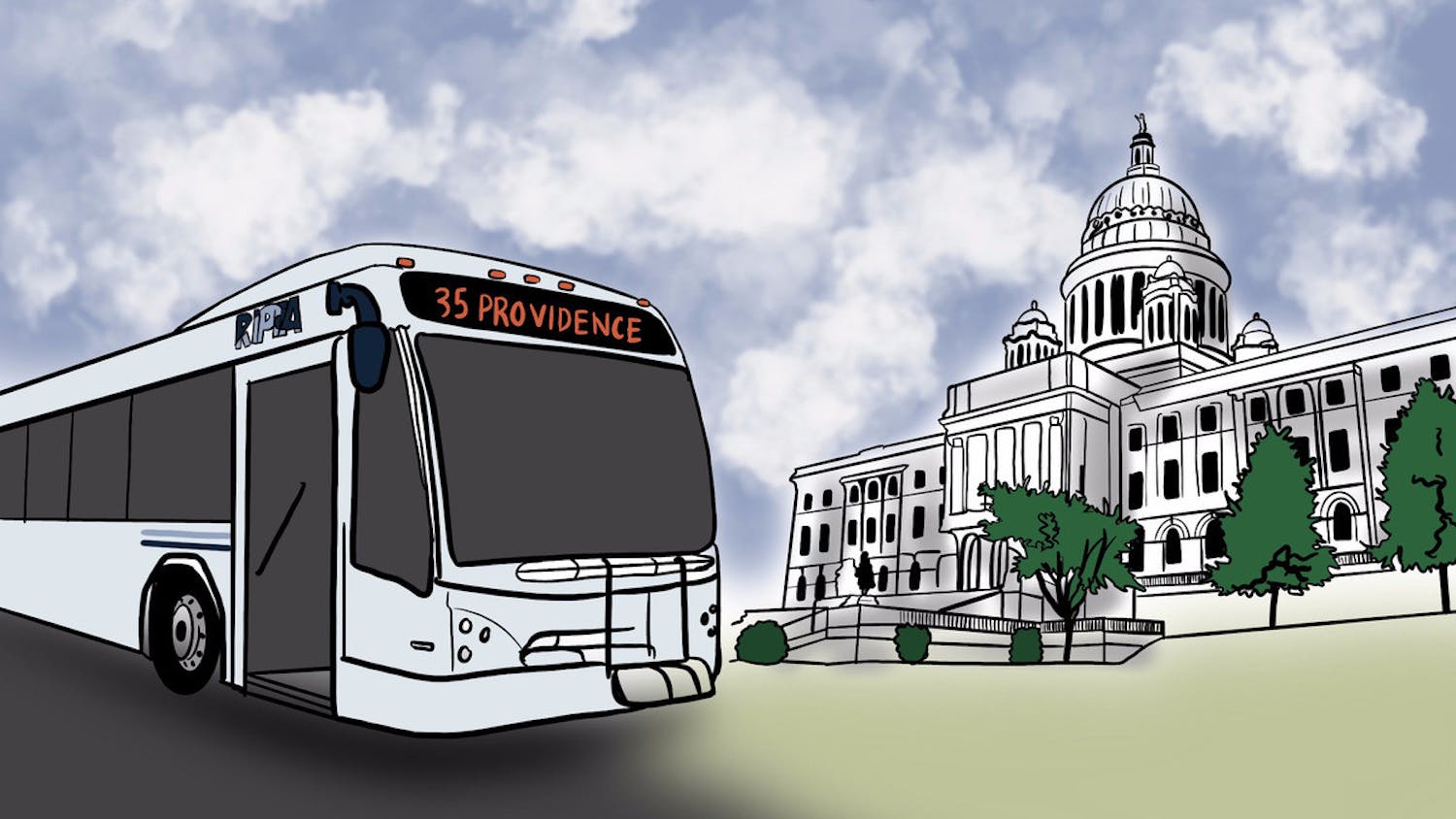For most Rhode Islanders, colder winter temperatures are a seasonal inconvenience. But for the state's homeless — a group that has grown due to the ongoing economic downturn — winter adds a new urgency to the daily struggle to find shelter.
Yesterday morning, the Rhode Island Coalition for the Homeless joined other homelessness prevention groups to formally announce the opening of Emmanuel House, the first emergency winter shelter to open its doors this season. The new shelter, formerly the Carter Day Care Center, is now open to provide shelter, food and community for many homeless Rhode Islanders.
About 50 people attended the press conference, including news media, volunteer organizations and the homeless residents of Emmanuel House. Seven speakers, including Bishop Thomas Tobin and Mike Carreiro, who was formerly homeless, discussed the challenges of homelessness and affordable housing in the state.
A winter shelter assessment conducted Sept. 28 revealed a deficit of 273 shelter spaces. Though Rhode Island's homeless population totals 657, shelters in the state have a year-round capacity of only 384 beds. More than 191 homeless Rhode Islanders sleep outside.
One of the speakers, Eric Hirsch, a sociology professor at Providence College and chair of the Homeless Management Information System Committee, said he believes these numbers do not account for every homeless person. The number of homeless sleeping outside is "probably 250, instead of 191," he said. "But even one is one too many."
"Inequality drives the problem of homelessness, and few very rich people directly cause homelessness," Hirsch added. He explained that affluent residents distort the housing market to make housing unaffordable for low-income people.
"They don't care, and they have no clue," Hirsch said.
Jim Ryczek, the coalition's executive director and the event's master of ceremonies, said homeless shelters are a moral imperative, but they are only a temporary solution to a critical social problem. He proposed setting aside funding for affordable housing as a long-term solution.
Speakers stressed that foreclosures, unemployment and evictions are key drivers of homelessness. By providing permanent, affordable housing for affected individuals and families, homelessness in Rhode Island could be eradicated, they said.
"Shelters perpetuate homelessness — it doesn't end homelessness," Hirsch said to thunderous applause.
Natacha Clavell '12, a coalition intern who helped organize the press conference, also stressed the need for affordable housing. "Homelessness is a problem that can be solved," she told The Herald. "There is not enough focus on the long-term solutions of affordable housing."
Of the roughly 10 homeless at the event, nearly all expressed appreciation for their temporary homes.
"I had lost a home that was signed to me by my mother," said Joseph Gomes, a Providence local who now stays at Emmanuel House, in an interview with The Herald. "I was outside in two-feet- to four-feet-deep snow."




